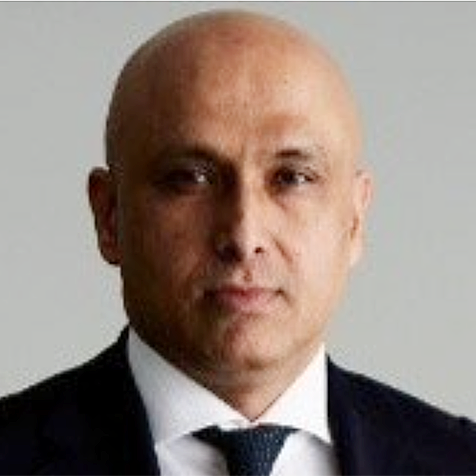Singapore’s economic prowess hinges on its mastery of wealth management. With a staggering S$4.9 trillion in assets (US$3.63 trillion) under its wing, the city-state has cemented its place as a global financial hub. This success is no accident; meticulous planning, smart regulations, and a business-friendly environment have fostered a thriving financial services sector, a cornerstone of Singapore's GDP, employment, and overall stability.
But as the very fabric of global finance evolves, Singapore must chart a new course to retain its crown in the wealth arena. The future is digital and the demands of the industry for such a transition transcend wealth management, calling for a more proactive role: becoming a comprehensive hub for wealth manufacturing. It is this paradigm shift, from wealth custodian to creator, that will lay the foundations for Singapore to claim the ambitious title of the world's wealth manufacturing hub.
Money stuck in the slow lane
While we have come a long way since the reconciliation of accounts by hand, lengthy paper trails, and manual data entry, the current financial infrastructure is still plagued by inefficiencies. For example, settling fund transactions can, in some cases, take up to ten days. This prolonged settlement period ties up capital, increases operational risks, and slows down businesses' ability to take quick and decisive action. Moreover, the industry still lacks a standardized approach to dealing with data, complicating communication between asset managers and financial intermediaries, making it challenging to scale operations without significantly increasing operational staff and costs. All these affect the bottom line for businesses and financial institutions.
Given the disruptions happening in the world of finance, Singapore must evolve from merely managing wealth to actively manufacturing it, shaping new growth opportunities rather than simply managing existing assets. Only by doing so can Singapore retain and strengthen its position as the world’s preferred wealth hub.
Fuelling the wealth engine
Forward-looking policies are instrumental in affecting industry-wide change, and the Monetary Authority of Singapore (MAS) has set out a strategic direction for Singapore’s financial sector with its Financial Services Industry Transformation Map (ITM) 2025. A big part of the roadmap involves the use of technology to develop digital infrastructure and platforms.
A key technology that Singapore’s financial industry has been experimenting with is distributed ledger technology (DLT), more simply known as blockchain. Although DLT itself is not new, technological advancements are starting to make its adoption feasible. Across the wealth value chain, DLT offers numerous benefits, including enhanced transparency, increased efficiency, and cost reduction. With DLT, financial processes can be automated and streamlined as well, without the need for intermediaries. This means that the movement and settlement of funds and other wealth products will be much faster. A great example of this would be the MAS’s Project Guardian, which explores the tokenization of funds through DLT. Under this initiative, Franklin Templeton and UBS Asset Management are exploring the issuance of tokenized money market funds, while Schroders is looking to record an investment portfolio direction onto the blockchain.
From a policy perspective, the introduction of the variable capital company (VCC) structure in 2020 has also been a game-changer. It offers greater flexibility for fund managers in terms of fund issuance and redemption, increasing Singapore's attractiveness as a destination for global investors and wealth managers. Since the VCC was introduced, a total of 969 VCCs have been incorporated or re-domiciled in Singapore for various use cases and fund strategies. Singapore’s increasingly vibrant funds ecosystem is now supported by more than 250 fund service providers, including lawyers, tax advisers, corporate secretaries, fund administrators, and fund directors.
Crossing the bridge
While Singapore has done well as a global wealth hub, key challenges remain. With nearly 80% of Singaporeans investing in financial products primarily in collective investment schemes (CIS), the entire process still relies heavily on outdated infrastructure. For example, certain wealth product workflows require electronic orders to be converted into physical faxes, leading to long settlement times and intensive reconciliations. This “spaghetti problem” of multiple networks and diverse communication protocols results in long settlement times and the need for intensive reconciliations.
To address these silos, a centralized funds market infrastructure is needed. An example of such is Marketnode’s Fundnode, where all participants within the funds ecosystem can be connected via a single infrastructure, enabling digitized workflows and standardized communication across cash and other forms of assets. With such building blocks in place, the ecosystem can benefit from not only more efficient wealth management but also expand to bringing higher value-add to the manufacturing of wealth products.
Moreover, such infrastructure can complement initiatives like the VCC structure and Project Guardian to create a comprehensive infrastructure that supports multi-format and multi-venue distribution models to facilitate fund advisory, domiciliation, manufacturing, servicing, and tokenization in Singapore.
Securing Singapore’s position
The transition from wealth management to wealth manufacturing can only be achieved through a combination of smart policies, industry collaboration, and next-generation financial infrastructure. The launch of Fundnode is a prime example as it brings all industry players – financial institutions, asset managers, and investors – together to drive innovation and efficiency across the entire wealth management spectrum and enable the industry to collectively capture more wealth opportunities. This approach will set a new way forward for wealth, placing Singapore in pole position as it forges ahead at the forefront of the global financial evolution to unlock new economic value for the entire wealth ecosystem.
Rehan Ahmed is president of Marketnode.









